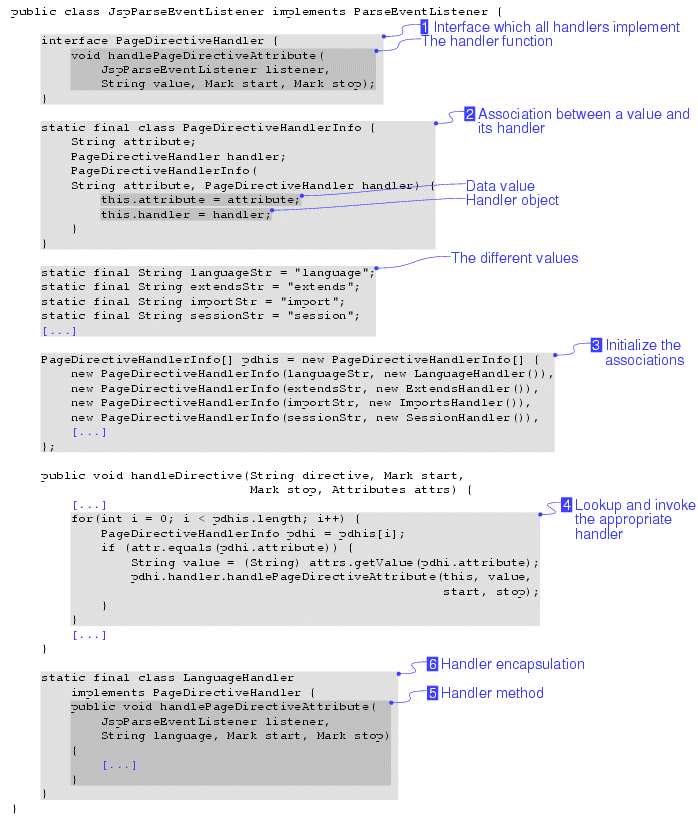(Why make it simple, when you can also make it complicated?)
Consider the task of associating code with specific data
values.
Using a multi-way conditional can be error-prone, because
the data values become separated by the code.
It can also be inefficient in the cases where we have to use cascading
else if statements, instead of a switch,
which the compiler can optimize into a hash table.
In C I would use an array containing values and function pointers.
My understanding is that the Java approach involves using the
Strategy pattern: a separate class for each case,
and an interface "to rule them all".
void setifflags (char *, int);
void notrailers (char *, int);
/* [...] */
void setifdstaddr (char *, int);
struct cmd {
char *c_name;
int c_parameter;
void (*c_func) (char *, int);
} cmds[] = {
{ "up", IFF_UP, setifflags } ,
{ "down", -IFF_UP, setifflags },
{ "trailers", -1, notrailers },
{ "-trailers", 1, notrailers },
/* [...] */
{ 0, 0, setifdstaddr },
};
 As they say, the code speaks for itself.
I believe the implementation is way too complicated for what it is trying
to achieve.
On the other hand, the programmer was just trying to overcome a limitation
of the Java programming language:
in Java methods are not first (or even second) class citizens.
As they say, the code speaks for itself.
I believe the implementation is way too complicated for what it is trying
to achieve.
On the other hand, the programmer was just trying to overcome a limitation
of the Java programming language:
in Java methods are not first (or even second) class citizens.
(My thanks to my colleagues Panagiotis Louridas and Spyros Oikonomopoulos for a fruitful discussion on this topic.) Comments Toot! Tweet
The hypocritical call to pause giant AI (2023-03-30)
AI deforests the knowledge’s ecosystem (2023-03-16)
How I fixed git-grep macOS UTF-8 support (2022-10-12)
The sorry state of software quality (2022-03-10)
Rather than alchemy, methodical troubleshooting (2021-11-27)
The Evolution of the Unix System Architecture (2021-06-18)
Reviving the 1973 Unix text to voice translator (2021-01-02)
Fast database UPDATE/DELETE operations (2020-12-10)
Raspberry Pi 400 vs ZX Spectrum (2020-11-02)
Last modified: Friday, May 13, 2005 9:54 am
Unless otherwise expressly stated, all original material on this page created by Diomidis Spinellis is licensed under a Creative Commons Attribution-NonCommercial 4.0 International License.




